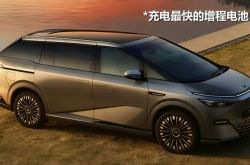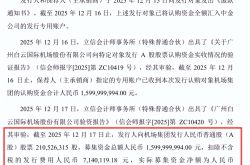The "Savior" of China's Electric Vehicles Should Be Exposed
![]() 09/19 2024
09/19 2024
![]() 613
613
Written by Bai Jiajia
Today, China's new energy vehicle industry stands at the top of the world, but some people are still stuck in 2014.
"Only after Tesla made its patents public did China have new energy vehicles."
In the eyes of these people, all the achievements of China's new energy vehicles must be attributed to Tesla. Without its selfless disclosure of patents, "domestic electric vehicles would not have developed in 50 years."
They firmly believe that all Chinese new energy vehicle companies are just pathetic echo chambers following Tesla, with an inexplicable pride lurking between the lines that "everyone else is drunk, but I alone am sober."
It is undeniable that as a pioneer, Tesla today is not only building cars but also constructing a brand-new intelligent transportation ecosystem.
But interestingly, when further questioned about which patents Tesla has opened up, which are the core ones, and how many times they have been cited, these people often immediately fall silent, repeating only the clichés of "confucius said" like Kong Yiji.
And so you can see that they actually don't understand new energy vehicles or innovation.
And this concept of "everything is attributed to Tesla" is essentially a lingering inferiority complex from the era when "100 million pairs of jeans were exchanged for a Boeing airliner," far removed from the truth.
1. The beginning of the story: "For the sake of the environment, Tesla's patents belong to everyone."
On June 12, 2014, Tesla's official website published an article titled "All Our Patents Belong to You."
As the article states, Musk said that "for the sake of the environment and sustainable development, we have decided to make all our patents public."
Why was it suddenly so generous?
The answer lies in 2014, when Tesla was in the doldrums of development.
Although annual revenue reached a new high of $3.2 billion, up 58.8% year-on-year, the losses were even more heartbreaking for Wall Street – down 297.2% year-on-year to $294 million.
Sales of the new Model S were also disappointing at the time. Only 9,834 were sold in the fourth quarter of 2014, 1,345 fewer than the original target.
Putting ourselves in Musk's shoes, he may have faced two difficulties at the time: one was how to explain Tesla's poor performance to investors, and the other was to find a new story to convince consumers to pay a high price for its products.
Ultimately, Musk "evolved" the answers to these two questions into a story of "promoting the development of the new energy vehicle industry through the disclosure of patents," which has been passed down by his followers to this day.
But in reality, this story is more like a word game.
Most patents are inherently public. Tesla has not abandoned its patent rights but has selectively chosen not to sue companies that use its patents.
Don't think it's free; the cost is actually very high, which we'll expand on later.
No wonder some people lament that Tesla has gained the image of a "technology pioneer" and the tolerance of investors with just one article.
Of course, for Musk, this may just be "basic operating procedure."
2. Is Tesla a patent giant?
How significant is Tesla's contribution to China's new energy vehicle companies? In fact, it can be seen from its relatively small number of patents.
According to the State Intellectual Property Office, Tesla disclosed 271 patents in June 2014, including 8 design patents and 263 invention patents.
If we look only at China, Tesla has even fewer patents.
Of the 263 patents, 183 were filed in the United States, while only 8 were filed in China, and only 3 were granted.
It's no wonder that Musk said, "We don't have real patents; patents are for the weak." – because there really aren't that many, especially in China.
Is it possible that Tesla's few patents in China are not due to Tesla's subjective will but are forced upon it?
The patent protection system is a system with geographical restrictions.
For example, if BYD and Tesla apply for patents for the same technology in China and the United States, respectively, their intellectual property rights are protected in their respective countries of application.
In other words, the fact that Tesla has few patents in China may not be because it doesn't want to, but because Chinese automakers have already developed similar technologies and applied for patents?
In fact, many reports from international research institutions have concluded that Tesla's technological strength is far weaker than many people imagine.
For example, in a joint report released by the South Korean media "Maeil Business News" and legal information provider LexisNexis in 2022, Tesla fell out of the top 200 in terms of patent competitiveness in the field of autonomous driving, with only 13 valid patents, while first-place Baidu had 3,477.
In other words, Tesla's emphasis on patent disclosure may be throwing smoke bombs into the market?
After all, in the public's inertial thinking, only the "landlord" has the means to open a shop and give out porridge, but Tesla is doing the opposite, essentially creating the illusion of a substantial foundation through the act of giving out porridge – even if there are hardly any grains of rice in the bowl.
3. Is Tesla really so selfless?
There is a very subtle phrase in Tesla's announcement –
"Tesla will not initiate patent infringement lawsuits against anyone who, in good faith, uses Tesla's intellectual property in vehicles and associated products."
What does it mean to act in good faith?
Simply put, if you use Tesla's patents, Tesla can freely use yours, and you cannot sue them for doing so, as that would not be "in good faith."
So, isn't Tesla's openness and dedication akin to an exchange of interests – you show me "good faith," and you must also show "good faith."
For Chinese automakers, this exchange is obviously severely unequal. As mentioned earlier, Tesla doesn't have many patents in China to begin with.
It is worth noting that while Tesla tries to win over competitors with "good faith," it may not have benefited little from its patents – in some ways, it may have even cashed in on the truly valuable parts long before they were made public.
Between 2010 and 2012, Tesla transferred 135 patents, 79 to PNC Bank Association and 56 to Midland Loan Services, securing a $465 million low-interest loan from the U.S. Department of Energy's Advanced Technology Vehicles Manufacturing Loan Program.
This means that if you want to use these 135 patents for free, sorry, but Tesla doesn't get the final say.
Isn't this like getting something for nothing?
4. China's new energy, "there has never been a savior!"
How much has Tesla contributed to China's new energy vehicle industry? In fact, the answer is clear when we delve into specific battery and motor technology routes.
Most of the patented technologies it disclosed back then have proven to be incorrect technology routes, and even Tesla itself has abandoned them.
But even with such a clear fact, many people still linger on the issue, with the most typical question being:
"Then how do you explain why companies like NIO, Xpeng, and Li Auto were all founded after Tesla made its patents public?"
And this is one of the reasons why many people deify Tesla.
In the history of China's new energy vehicle industry, 2014 was a very special juncture.
Before 2014, China spent nearly 20 years validating the development potential of the new energy vehicle industry and nurtured a group of leading companies.
Starting in May 2014, more than 40 cities, including Shanghai, Wuhan, and Suzhou, successively announced policies to promote new energy vehicles, and the industry officially entered a thriving stage.
In other words, even if Tesla had not made its patents public externally, China's new energy vehicle industry had already sprouted a strong endogenous driving force.
And some have commented that Musk chose to "disclose patents" in June, taking advantage of the industry's momentum to establish himself as a leader.
So, do you think the rooster crows and the sun rises?
Perhaps the criticisms of Ouyang Minggao, academician of the Chinese Academy of Sciences and vice chairman of the China Electric Vehicle Hundred People Forum, best strike at the core inferiority complex of these people –
"There are still those who are subservient to foreign things and don't believe that China can innovate. For example, they say that electric vehicles are only possible because Tesla made its patents public, which is simply not true, but the rumor is widespread because they don't believe that Chinese people can innovate."
It is undeniable that there is much to learn from Tesla, and Musk deserves our respect.
Academician Tan Jianrong analyzed the historical development of automobiles and listed four epoch-making events, with the rise of Tesla being the fourth.
But in centuries of business history, the shift between leaders and followers often happens inadvertently. Chinese automakers should not underestimate themselves.
Wan Gang, President of the China Association for Science and Technology, believes that China's automobile industry currently has the following advantages:
First, remarkable achievements have been made in low-carbon automotive development; second, China's electric vehicles have ranked among the top internationally; and third, intelligent automotive technologies are accelerating.
Similar stories have quietly unfolded in various fields such as smartphones and photovoltaics.
We should pay tribute to Tesla and Musk, but not kneel before them.
?





